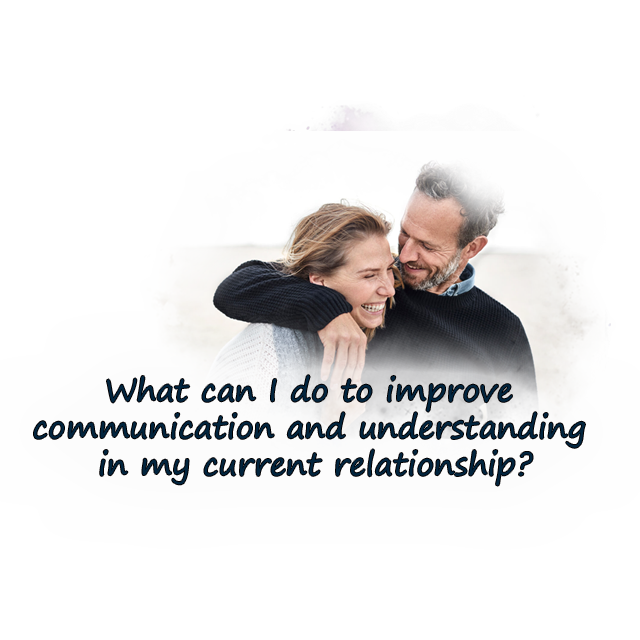
If you’re looking to improve communication and understanding in your current relationship, it’s important to pay attention to nonverbal communication as well as verbal communication. This means being aware of your own body language and facial expressions, as well as being attuned to your partner’s nonverbal cues. To improve your nonverbal communication, try to maintain eye contact when speaking with your partner, use open and inviting body language, and avoid crossing your arms or appearing defensive.
By paying attention to nonverbal communication, you can gain a deeper understanding of your partner’s thoughts and feelings, even when they aren’t explicitly stated. Nonverbal cues can often reveal a person’s true emotions and intentions, making it an essential aspect of effective communication.
One way to improve nonverbal communication is to practice active listening.
Active listening means paying attention to both verbal and nonverbal cues, and demonstrating that you are fully present and engaged in the conversation. This means maintaining eye contact, nodding or using other affirmative gestures, and avoiding distractions such as phones or other devices. By demonstrating active listening, you show your partner that you value and respect their thoughts and feelings, which can help to strengthen your relationship.
Another important aspect of nonverbal communication is touch. Touch can communicate a range of emotions, from love and affection to anger and frustration. It’s important to be mindful of how touch is used in your relationship and to communicate your boundaries and preferences clearly. Some people may feel more comfortable with physical touch than others, and it’s important to respect your partner’s comfort level.
In addition to paying attention to nonverbal communication, it’s important to be mindful of your own verbal communication. This means being clear and direct in your communication, avoiding passive-aggressive behaviors, and using “I” statements instead of “you” statements. For example, instead of saying “you never listen to me,” try saying “I feel like I’m not being heard when we talk.” By using “I” statements, you express your own feelings and needs, rather than placing blame or attacking your partner.
Another important aspect of verbal communication is avoiding criticism and defensiveness. Criticism can often feel like an attack on a person’s character, leading to defensiveness and resentment. Instead of criticizing your partner, try to express your concerns or issues in a constructive and respectful way. This means avoiding blame and focusing on finding a solution together.
Finally, it’s important to make time for regular communication in your relationship. This means setting aside time to talk about important issues, as well as to simply connect and enjoy each other’s company. By prioritizing communication in your relationship, you demonstrate that you value and respect your partner, and are committed to building a strong and healthy relationship.
In conclusion, improving communication and understanding in your relationship requires attention to both verbal and nonverbal communication. Paying attention to nonverbal cues, practicing active listening, and being mindful of your own verbal communication can all help to improve communication and strengthen your relationship. By prioritizing regular communication and making an effort to connect with your partner, you can build a strong and healthy relationship that lasts.
